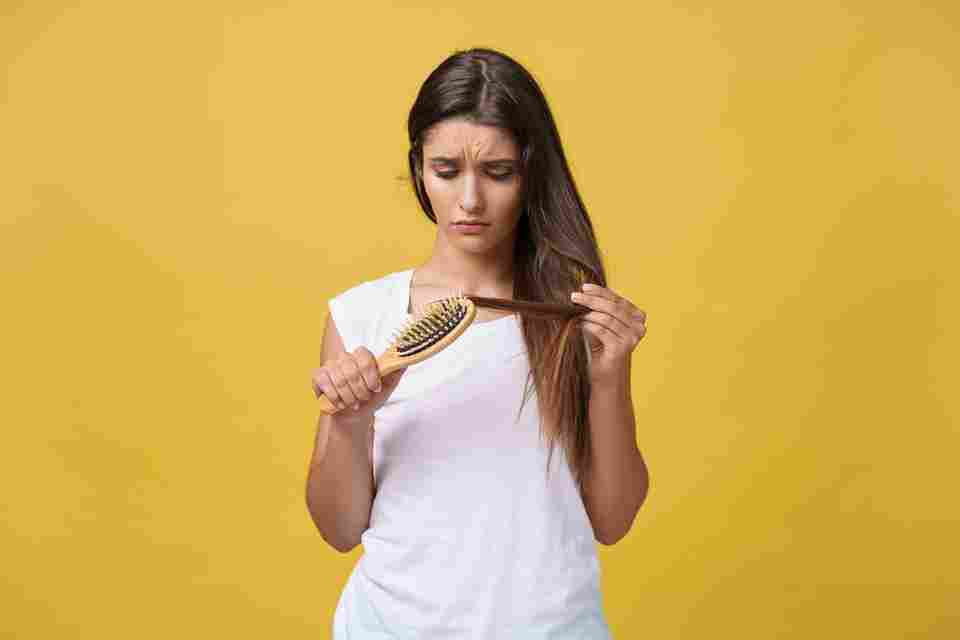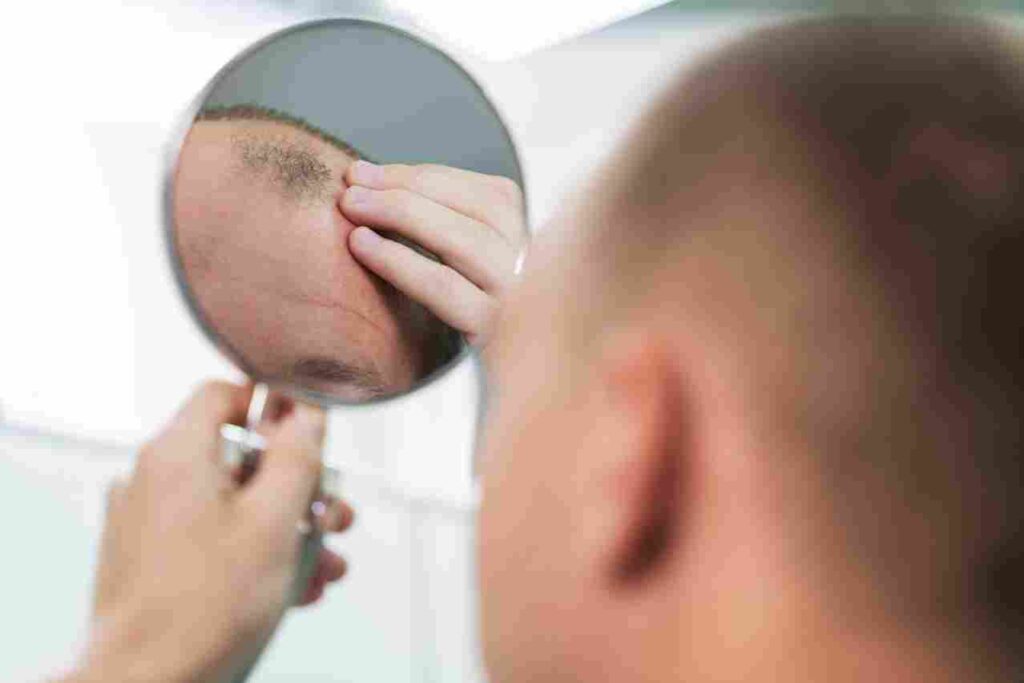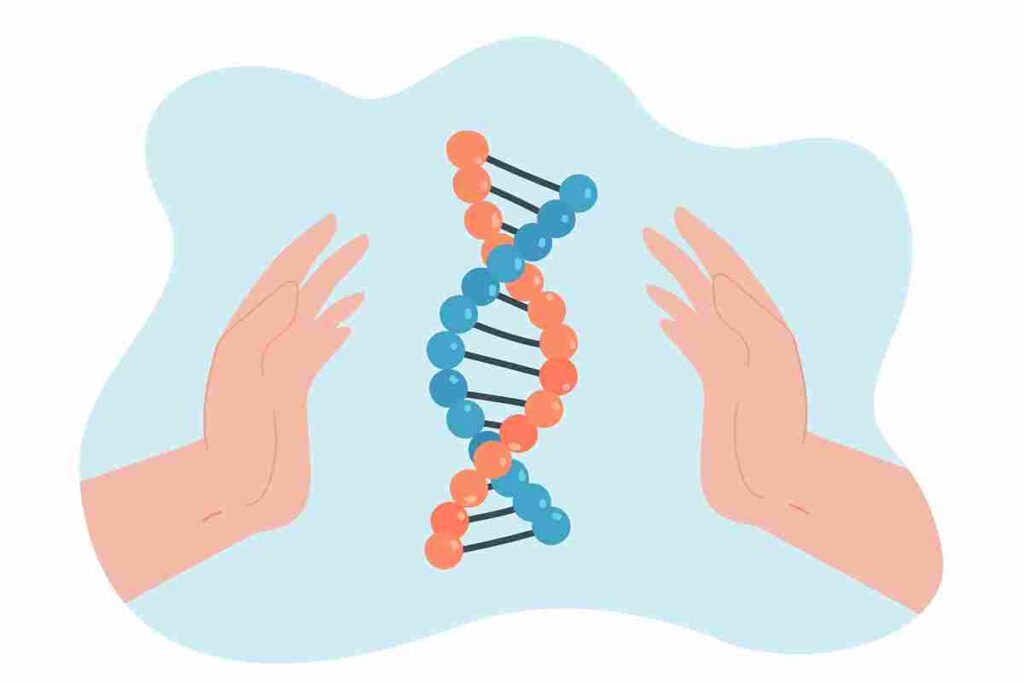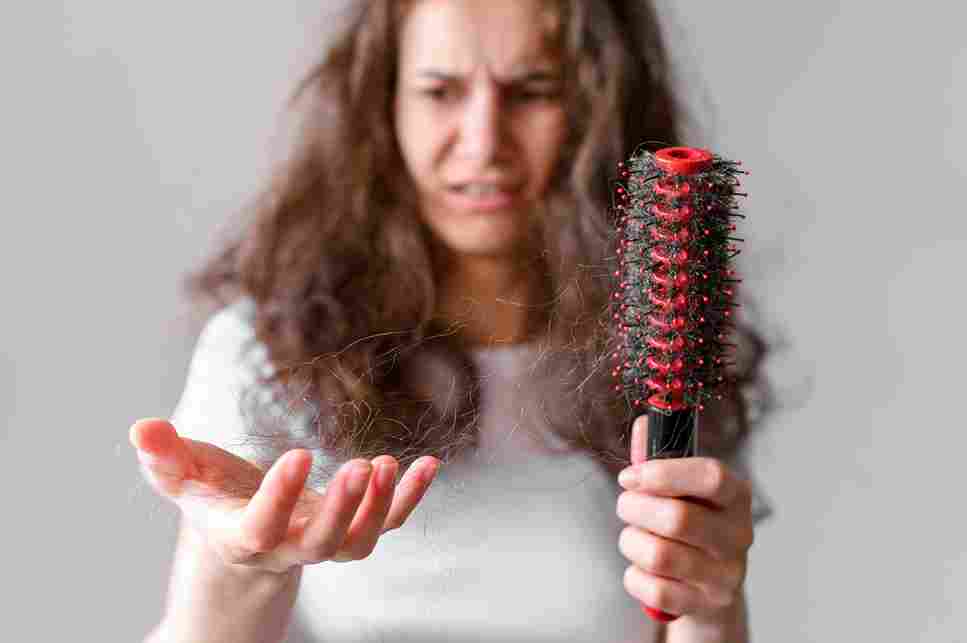Hair loss is a common condition where a person experiences partial or complete hair loss from the scalp. Let’s discuss in detail what causes hair loss and how to manage it.
In medical terms, hair loss is also called alopecia and ‘khalitya’ in Ayurveda. Nowadays, it is a common occurrence for men and women of any age.

According to the American Academy of Dermatology (AAD), a person loses 50 to 100 hairs in a day, which is considered normal because this small amount of losing hair is unnoticeable among the volume of the hair.
Hair loss can vary from mild thinning to total baldness and can be caused by illness, stress, or genetics.
Signs and Symptoms of Hair Loss
Symptoms of hair fall usually depend on the reasons behind it, whether it is because of your illness or medication. You may notice the following symptoms when you are losing hair :
- Gradual thinning of the hair on the head is one of the most common symptoms of a person experiencing hair loss. The thinning of the hair in men occurs with a receding hairline, and hair loss starts at the crown. Whereas, in many women, hair fall leads to overall thinning throughout the year.
- A change in the hair texture is one of the signs of hair fall, in which the hair becomes thinner, finer, or brittle.
- Some hair fall can result from a scalp infection or inflammation, which can make your scalp itchy, red, and irritated.
- A bald spot, or complete baldness, is one of the symptoms of losing hair where affected areas of the scalp have no hair growth.

What Are the Common Causes of Hair Loss?
There are various possible reasons for hair loss, but the following are some common causes:
- Hormonal Changes
Hormonal changes in females or males can contribute to hair loss. In women, during childbirth, pregnancy, or menopause, they experience fluctuations in the levels of hormones that affect the growth cycle of the hair and lead to increased hair fall.
- Heredity

One of the most common causes is hereditary, which contributes to hair fall. This condition is also known as androgenetic alopecia or male-female pattern baldness.
- Medication
Certain types of medications and treatment options can increase the risk of hair loss. For instance, chemotherapy drugs, radiation therapy, and medications related to high blood pressure or heart conditions.
- Stress

Stress can disrupt the normal functioning of the hair growth cycle and can result in losing hair.
- Unhealthy Lifestyle

Following an unhealthy lifestyle, like improper sleep, consuming processed foods, and exercising excessively, can lead to hair fall.
- Hair Products

Using chemical-based hair products can affect the health of hair strands and the root. Hair products containing Sodium Lauryl Sulphate (SLS) can hamper the growth of new hair follicles, resulting in losing hair.
What Are the Options for Controlling Hair Loss?
Hair fall can be a temporary condition, which means the hair will regain its volume in the best possible condition and does not need any treatment. However, you should consider treatment options when hair loss causes distress. There are a variety of treatment options that help with hair growth and regulate hair fall. Let’s understand some of them:

1. Herbal Medication
Certain herbs like Amla, Bhringraj, Neem, Aloe Vera and more can help prevent hair damage and make hair follicles contract so that they won’t break when pulled.
2. Dietary Recommendations
To prevent losing hair, you should start including fresh fruits, coconut milk, and nuts for your hair growth. Also, make sure you avoid too much caffeine, processed foods, junk foods, and packaged foods to promote the development of new hair follicles.
3. Shiro Abhyanga (Ayurvedic Scalp Massage)
Regular scalp massages using Ayurvedic oils can improve blood circulation to the scalp, nourish hair follicles, and promote hair growth.
4. Nasya Therapy
This involves applying herbal oils or powders to the nasal passages, which may help improve blood circulation to the scalp and reduce hair fall.
5. Cleansing Methods
Certain Ayurvedic techniques like Shirodhara (pouring herbal oil on the forehead) or Panchakarma (detoxification) are believed to have a positive impact on hair health by promoting relaxation and balancing the doshas.
Overview
Hair loss can be extremely upsetting for many people and may impact their quality of life. However, losing hair or hair fall is a common problem and can be restored through some treatments, medications, and dietary changes.
Ayursparsh Clinic and Panchakarma Centre in Dharwad, Karnataka, can treat hair loss and help regain self-confidence.
Benefit yourself from a proper diagnosis and personalised treatment options from Dr. Rashmi Patil, a renowned Ayurvedician, known for treating hair issues.




